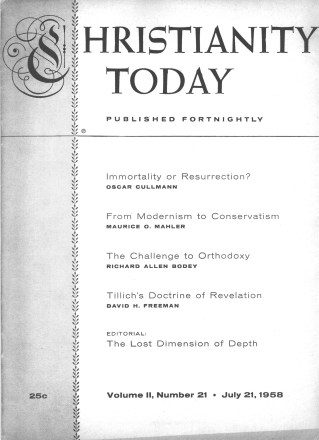And the second is like unto it, Thou shalt love thy neighbour as thyself (Matt. 22:39).
The shortest and most comprehensive commentary ever given of this commandment is that of our Lord, several times repeated: “Whatsoever ye would that men should do unto you, do ye even so to them.” This is declared to be “the law and the prophets”; that is, it comprehends all the duties which we owe to our fellow men, inculcated in the law and the prophets.
The New Testament makes a great deal of that summary of duty. No fewer than three several times do we find our Lord appeal to it as embracing the pith of the whole second table of the decalogue; and after his example it is twice cited in the letters of St. Paul, and once by St. James. Of course, thoughtful students of the Hebrew canon must always have felt it to be one of its profoundest ethical axioms. But the current teaching of our Lord’s day broke down the force of the glorious old saying, not only or so much by forgetting the important words “as thyself,” which made man’s selfishness the very measure of his charity, as by narrowing that area of neighborliness within which charity is commanded.
Like Unto First
The love of man is intimately connected with the love of God. Philanthropy and piety are sister sentiments. It was a doctrine of the Pharisees, that the strict observance of one precept would atone for the neglect of others. But Jesus inculcates obedience throughout, both in our relations to God and to man.
A. A. LIVERMORE
The second part of the summary is the corollary of the first, and cannot be realized except in connection with it. Nothing but the reigning love of God can so divest the individual of devotion to his own person, that the ego of his neighbour shall rank in his eyes exactly on the same level as his own. The pattern must be loved above all, if the image in others is to appear to us as worthy of esteem and love as in ourselves.
F. GODET
Jesus teaches that a divine unity pervades the law, a unity that cannot be broken; all its separate commands resting upon a common, immutable basis; also connected in spirit and obligation, that you cannot truly obey one without obeying all, nor break one without breaking all. Looking at the law in this oneness of character, Jesus points to the two requirements of love to God and love to one another as containing the sum and substance of the whole.
WILLIAM HANNA
It is just the circumference of the duty, whose centre is represented in the preceding commandment. Whosoever really loves God supremely is emancipated from selfishness; and whenever this emancipation takes place, the unselfish spirit goes out with its love to all kindred spirits around. In imperfect man, indeed, sometimes the Godward tendency over-weighs too much the manward; and sometimes, on the other hand, it is the philanthropic tendency that is “loaded.” But the two tendencies are not in antagonism. They are complementive, the one of the other. And when either is clear and pure, it involves the other.
JAMES MORISON
Degree Of Love
Self-love, as being an original principle of our nature, and therefore not subject to the caprices of the will, is wisely made the standard of men’s love to one another, which would otherwise be ever sinking far below the level of our natural regard to our own welfare.
J. A. ALEXANDER
Now, thou lovest thyself truly, really, fervently, freely, constantly, hiding thine own defects and deformities as much as may be. Thou wouldst have others rejoice with thee and condole with thee as occasion serves. Go thou now and do likewise to others.
JOHN TRAPP
This second commandment condemns every one of us; for no one, by nature, loves his neighbor as he loves himself. And those of us who are under the influence of God’s grace are fully conscious that our love for our brethren, as our desire for our own highest good, is wavering and fragmentary. But if we are truly converted, regenerated people, then this commandment has begun to be realized in our lives; we have begun to love men, even all men.
R. E. GOLLADAY
Therefore, if thou wouldst know how thy neighbour ought to be loved, and wouldst have a plain example thereof, consider well how thou lovest thyself. If thou shouldst be in necessity or danger, thou wouldst be glad to have the love and friendship of all men, to be holpen with the counsel, the goods, and the strength of all men, and of all creatures. Wherefore thou hast no need of any book to instruct and to admonish thee how thou oughtest to love thy neighbour; for thou hast an excellent book of all laws, even in thy heart.
MARTIN LUTHER
The principle difficulty which has been found in explaining this second commandment is the degree of love which is required of us, toward our neighbour. “Thou shalt love thy neighbour as thyself.” Now, to many this seems to be simply impossible. Some expositors have therefore explained the meaning to be, Thou shalt love thy neighbour as truly as thyself, or with the same kind of love. But this cannot be admitted to be the true import of this commandment. For in the first and greatest commandment, the degree in which we should love God is fixed. It must be with all the heart, all the soul, all the mind, and all the strength. If it had only been intended to teach that we should love our neighbour in some degree, there would have been no use in saying “as thyself.” And according to this interpretation, the least conceivable degree of love would have answered the demands of the law. Undoubtedly, the commandment should be taken in its plain and obvious meaning. It does require, that we should love our neighbour as much as we love ourselves.
A. ALEXANDER
We dare not, by any subterfuges, try to get away from the obligations of the second great commandment. It is God who says, “Thou shalt love thy neighbor,”—love him as we do ourselves. We have no more right to say that we will not love our neighbors than we have to say that we will not love God. Jesus Himself says this second commandment is like unto the first. It comes from the same high source of authority. It requires the same thing. Its binding force is just as irrevocable. Its violation comes from the same fundamental source, offends the same supreme authority, and leads to the same consequences. It is vain for us to claim to be children and worshippers of God while we entertain feelings which lead us to look down upon or hate our brethren of mankind.… The love of God and man are but two sides of one great emotion. The love which goes out to God supremely is, as far as part of the rays are concerned, simply deflected toward man, the child of God.
R. E. GOLLADAY










